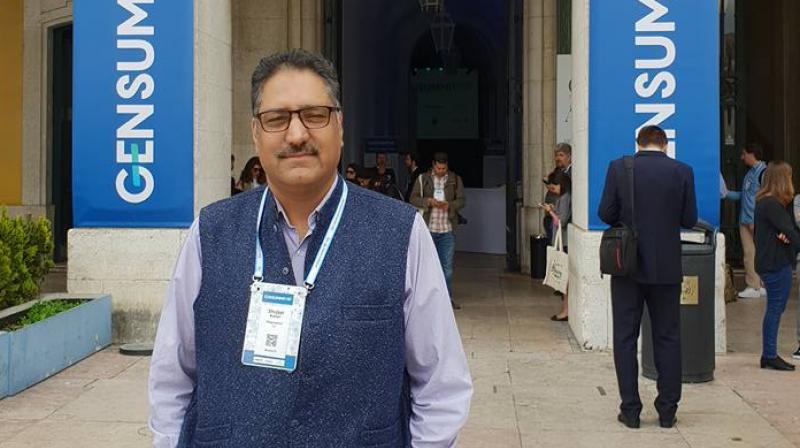Political dialogue in J&K is a must

The shocking — and very disturbing — targeted assassination in Srinagar on Thursday of eminent Kashmir editor Shujaat Bukhari, who was a voice of reason, democracy, dialogue and protection of human rights, ironically took place on the same day as the release in Geneva of a report by the UN High Commissioner for Human Rights that mistakenly sees its remit as including the making of political demands. This detracts from the UN body’s presumed impartiality as a neutral observer, and casts doubts on questions of human rights it talks about. Human rights violations in a disturbed area merit serious attention if we are serious about the most basic rights of citizens. But, for any remedy to be meaningful, the tribune must be unbiased and focus on the context.
In Kashmir, many demand independence or azaadi, a term with layers of meaning, including separating from India. However, a determined and well-armed minority, fed and nurtured by terrorist intruders from Pakistan, aims to join Kashmir to Pakistan and in this endeavour receives the support of the Pakistani state. Every Kashmiri understands this and most hold this category fundamentally responsible for the violence that the Valley has suffered. The actions of the Indian security forces and the J&K Police have also been a source of continual violence and civic life is harshly disrupted from time to time, leading to further radicalisation, especially of young civilians. The ordinary people of Kashmir understand all of this and are still terrified at the thought of the Indian forces leaving.
The gunning down of the distinguished editor happened on the same day that a Muslim soldier from the Jammu region, travelling home for Id-ul-Fitr, was kidnapped in south Kashmir. His bullet-ridden body was discovered hours later. From the look of things both killings were deliberate actions of Pakistani intruder-terrorists or their accomplices. The evident purpose was to sabotage the prospect of the government extending the Ramzan ceasefire, which closes at the end of Id on Saturday.
The UN human rights body makes little room for the understanding that Kashmiris, in general, possess — of the role of foreign-led, foreign-inspired terrorist violence linked to jihadism that has devastated Kashmir over the decades. This betrays its biases. Its lack of grasp of the situation in Kashmir is revealed in its sweeping language of denunciation, its political call for self-determination, and its demand for the withdrawal of the Armed Forces Special Powers Act, all of which place it on the same side as the Islamist partisans. The Modi government’s dogged refusal to have political dialogue and pursue military means alone (until the recent Ramzan ceasefire) has caused the ceding of ground to violence. It has silenced the voices of sanity and democracy. It has emboldened the ignorant UN human rights outfit whose call for an international inquiry into Kashmir must be contemptuously rejected.

